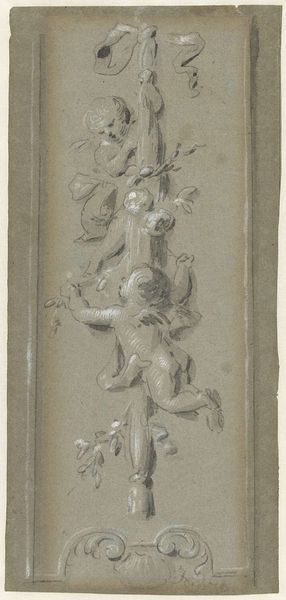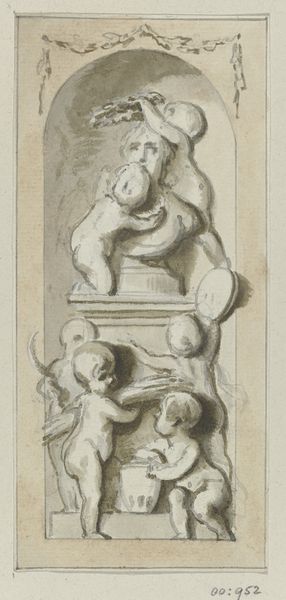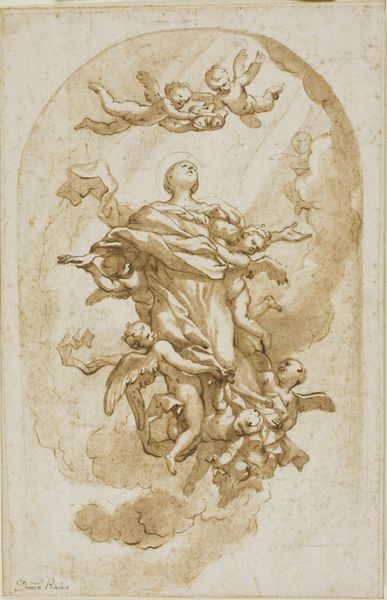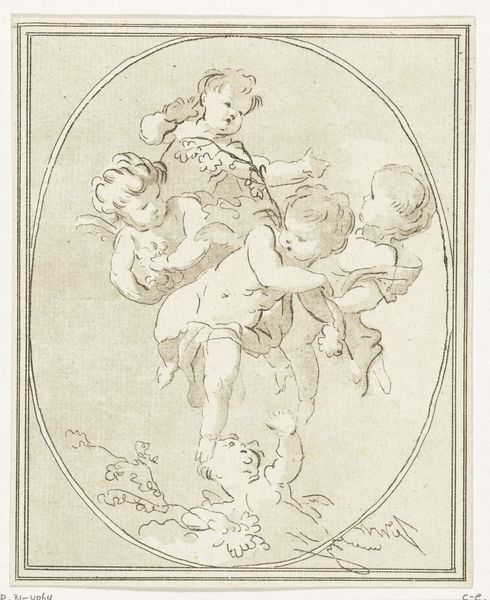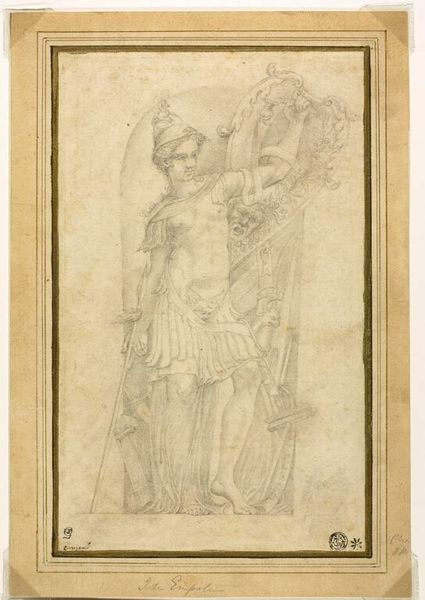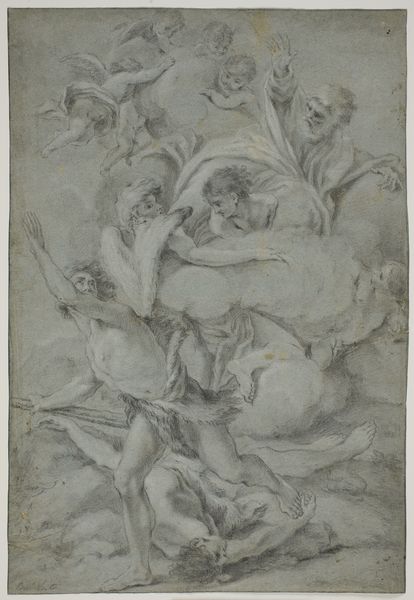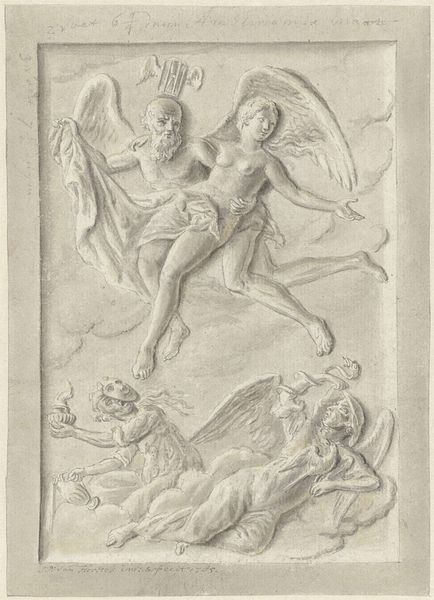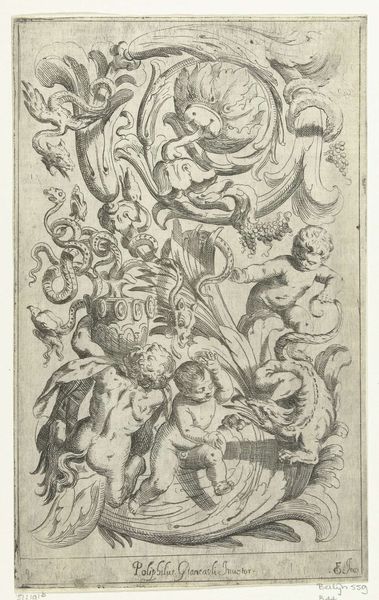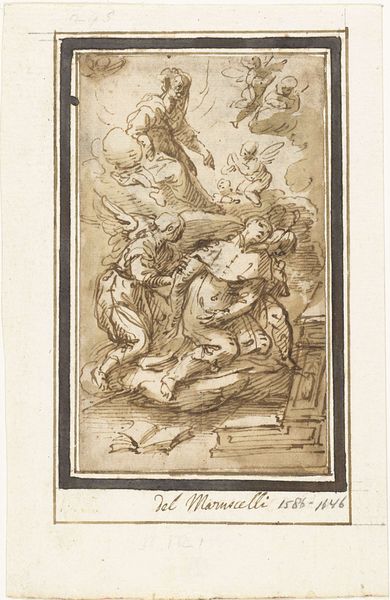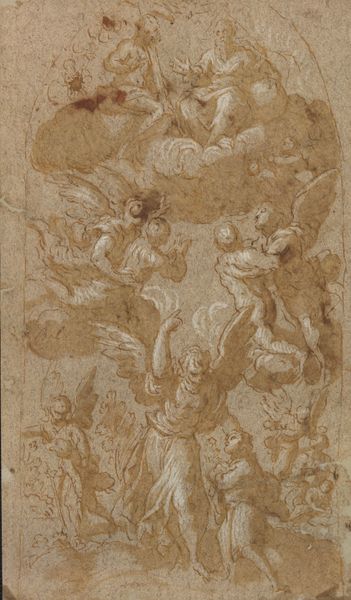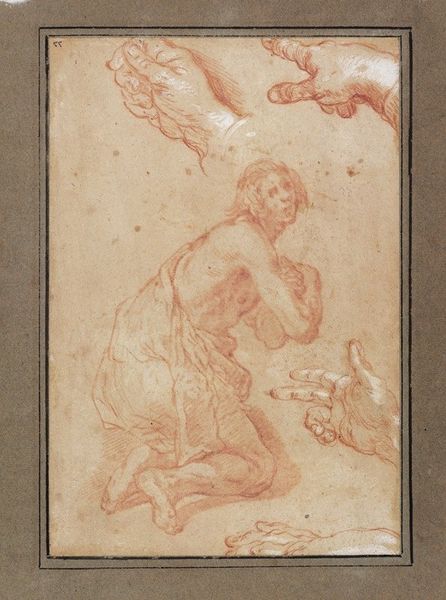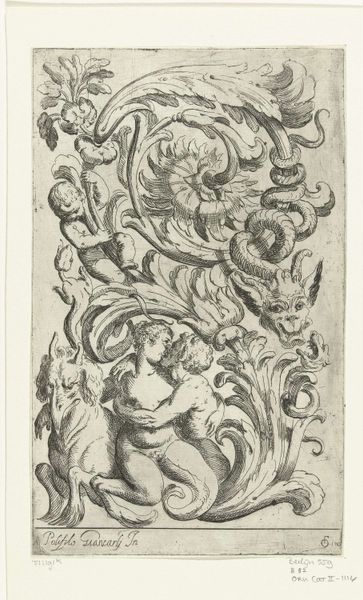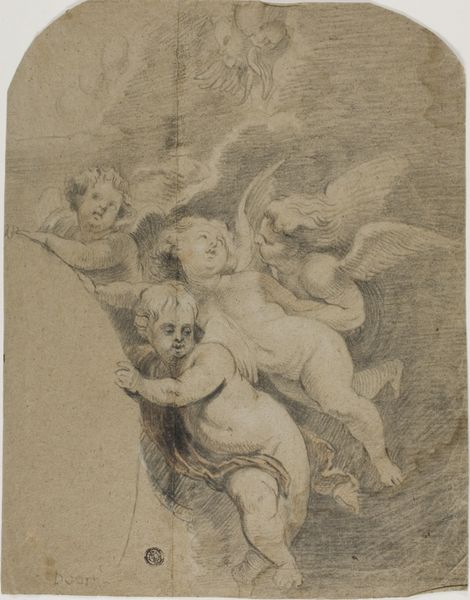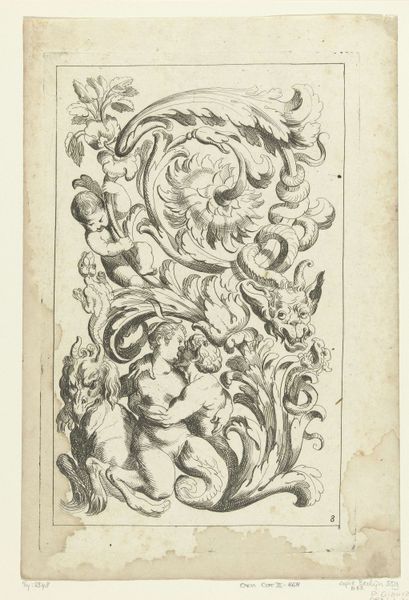
drawing, pencil
#
drawing
#
baroque
#
figuration
#
pencil
#
history-painting
#
academic-art
Dimensions: height 283 mm, width 132 mm
Copyright: Rijks Museum: Open Domain
Jacob de Wit made this chalk design for a wall covering with three putti some time in the first half of the 18th century. De Wit was famous in his time for his illusionistic ceiling paintings, often featuring such figures. The design itself is not particularly innovative. What interests me more is the place of such decoration within the homes of wealthy merchants in the Dutch Republic. Throughout the 17th and 18th centuries, Dutch elites invested a great deal of capital in the aesthetic embellishment of their canal houses. High-end interiors became important sites for displaying one's wealth and taste, both of which were closely linked to social status. An art historian might well investigate the archives of prominent families to see how often they commissioned De Wit, or others like him, to decorate their homes. Similarly, probate inventories are often a good source for information about the relative value of domestic decoration at this time. The meaning of art is, after all, contingent on such social and institutional contexts.
Comments
No comments
Be the first to comment and join the conversation on the ultimate creative platform.
